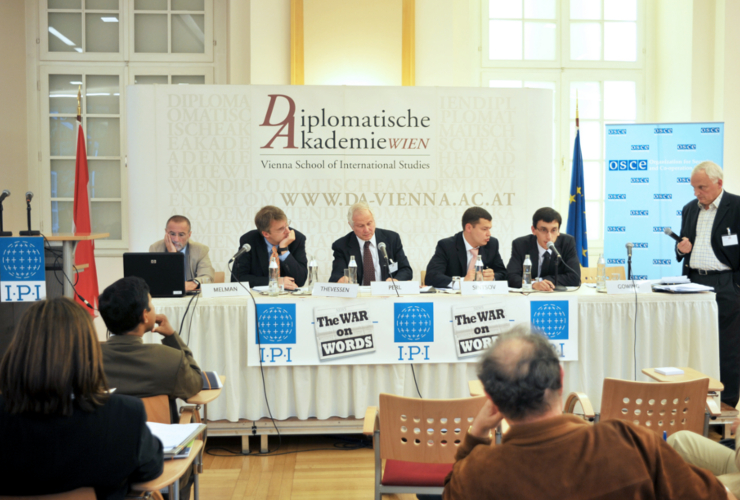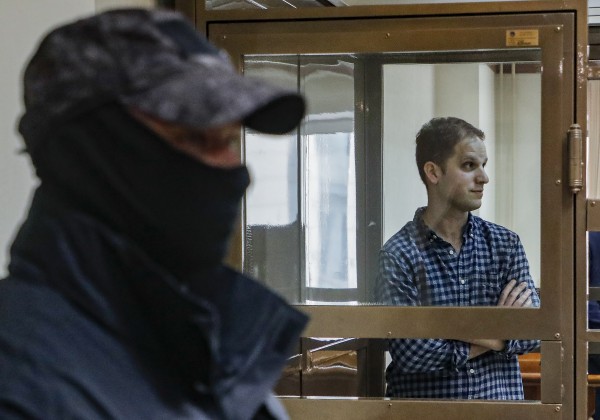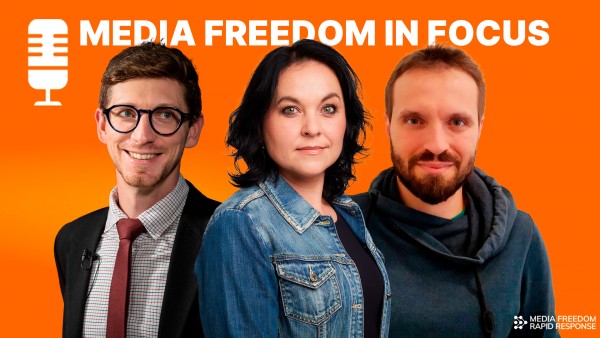PREAMBLE
Participants at the IPI-CILS conference, “The War on Words – Terrorism, Media and the Law”, held in Vienna, Austria, on Oct. 5-6, 2009, reiterate that freedom of expression and of the media are fundamental human rights, enshrined in Article 19 of the United Nations Universal Declaration of Human Rights.
Article 19 of the Universal Declaration states:
Everyone has the right to freedom of opinion and expression; this right includes freedom to hold opinions without interference and to seek, receive and impart information and ideas through any media and regardless of frontiers.
We recognise that security is essential to safeguarding democracy and all human rights. Furthermore, Article 3 of the Universal Declaration guarantees the rights to “life, liberty and security of person,” which are closely related to wider security concerns.
At the same time, an important objective of many of those committing acts of terrorism is to undermine democracy and weaken respect for human rights. Journalists reporting on terrorism sometimes risk being attacked, taken hostage, or even killed. To respond to terror by unduly restricting rights, including the right to freedom of expression, would be to play into the hands of terrorists.
We believe that effective security and respect for freedom of expression are not incompatible but, rather, complementary. Indeed, it is our view that the free flow of information and ideas is an important antidote to terrorist ideologies and that a free media is indispensable to achieving this. Terrorism thrives where secrecy and rumour-mongering prevail. Individuals who have access to diverse, uncensored sources of information are less likely to resort to violent action than those who do not. Where effective platforms for democratic dialogue exist, underpinned by respect for freedom of expression, social tensions and disagreements are more likely to be resolved in peaceful ways.
A free and independent media, including new media, can play an indispensable role in holding those wielding power to account. A robust media sector, able to exert an effective watchdog role over security policies and bodies, and thereby help prevent abuse and wrongdoing, is key to combating terrorism.
No restrictions should be imposed on the right to freedom of expression, including to safeguard security, that do not meet international law standards.
Reporting on terrorism poses special challenges and the media should always strive to do so professionally and in accordance with ethical standards, including the principle of minimising harm.
DECLARATION
1. Everyone has the right to access diverse, uncensored sources of information. States should create an environment that encourages the development of a diverse, pluralistic media sector.
2. Media freedom, including editorial independence, should be respected by States and inter-governmental organisations. Specific obligations should not be imposed on media outlets in the pursuit of counter-terrorism.
3. The media should be free to report on terrorism, including terrorist acts and ideology, as long as this does not constitute intentional incitement to terrorism. Such reporting should not be penalised as ‘radicalising’ potential terrorists or under other vague and unduly broad grounds, such as ‘glorifying’, ‘justifying’ or ‘promoting’ terrorism or extremism.
4. The right of the media to report on violations of human rights and on the infringement of civil liberties should be respected.
5. Voluntary self-regulation is an important and appropriate means of promoting professionalism and high standards in the media. States should respect the right of the media to engage in self-regulation, which may include establishing standards of practice and other media accountability systems.
6. Policies and laws adopted with a view to combating terrorism should be consistent with international and constitutional standards, including guarantees of freedom of expression and of the media. In this regard, the notion of national security should not be abused to protect the government, powerful interests or particular ideologies, or to prevent the exposure of wrongdoing or incompetence.
7. States of emergency should not be declared outside of situations that threaten the life of the nation. Any limitations on rights during emergencies, including the right to freedom of expression and of the media, should be limited in ways and duration that are strictly required by the situation.
8. No State or inter-governmental organisation should seek to take control over a private or public media outlet, including during an emergency or terrorist threat.
9. States and inter-governmental organisations should recognise and respect the right of media workers and media outlets to protect the identity of their confidential sources of information.
10. The right to access information from public bodies, both national and international, as well as private bodies undertaking public functions, should be recognised in law and respected in practice through right to information laws (also known as access to information or freedom of information laws), in accordance with international standards. Public bodies should, in particular, avoid overbroad national security exceptions to the right to information.
11. Enforcement of counter-terrorism laws should never be arbitrary or conducted in bad faith and should always be subject to independent judicial oversight.
The following organisations, all members of the International Freedom of Expression Exchange (IFEX) network, have endorsed the Vienna Declaration on Terrorism, Media and the Law:
- Adil Soz – International Foundation for Protection of Freedom of Speech, Kazakhstan
- Association of Caribbean Media Workers (ACM)
- Association of Independent Electronic Media (ANEM), Serbia
- ARTICLE 19
- Bahrain Center for Human Rights
- Canadian Journalists for Free Expression (CJFE)
- Center for Media Freedom and Responsibility, Philippines
- Center for Media Studies and Peace Building, Liberia
- Centre for Independent Journalism, Malaysia
- Committee to Protect Journalists (CPJ)
- Exiled Journalists Network, UK
- Human Rights Watch
- IFJ Asia-Pacific
- Independent Journalism Center, Moldova
- International Federation of Journalists (IFJ)
- International Press Institute (IPI)
- Instituto Prensa y Sociedad de Venezuela (IPYS Venezuela)
- Inter American Press Association (IAPA)
- Maharat Foundation, Lebanon
- Media Foundation for West Africa
- Media Institute of Southern Africa (MISA)
- Media Rights Agenda, Nigeria
- Media Watch, Bangladesh
- Pacific Freedom Forum
- Pakistan Press Foundation (PPF)
- Palestinian Center for Development and Media Freedoms (MADA)
- Privacy International
- Public Association “Journalists”, Kyrgyzstan
- Southeast Asia Press Alliance (SEAPA)
- Pacific Islands News Association (PINA)
- Reporters Without Borders (RSF)
- World Association of Newspapers and News Publishers (WAN-IFRA)
- World Press Freedom Committee (WPFC)



